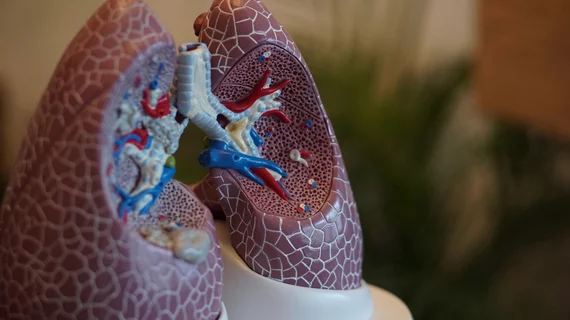Lung-care AI company secures $1M from provider-system partner
The venture arm of 32-hospital UnityPoint Health is partnering with VIDA Diagnostics, investing $1 million to fine-tune and broaden the use of VIDA’s AI software for flagging signs of trouble in lung images.
VIDA’s primary product, called LungPrint, automatically analyzes chest CT scans for pulmonary conditions such as emphysema and interstitial lung disease.
The investment allows Iowa-based VIDA to simultaneously tap funds from the Iowa Economic Development Authority, according to a July 25 announcement.
“The State of Iowa is proud of VIDA’s worldwide impact on patients with, or at risk of, lung disease,” said Debi Durham, director of the Iowa Economic Development Authority and Iowa Finance Authority, in prepared remarks. “VIDA and today’s news are great examples of what can happen when public and private partners come together to foster an entrepreneur ecosystem that supports the success of start-ups in our state.”
For UnityPoint, which serves patients throughout Iowa, western Illinois and southern Wisconsin, the investment in VIDA is part of a $100 million program launched in May to support young companies working in digital health, medical devices and other areas.

